Answered step by step
Verified Expert Solution
Question
1 Approved Answer
j-1. Add the depreciation tax shield benefits and the aftertax cost savings to determine the total annual benefits. Note: Do not round intermediate calculations and
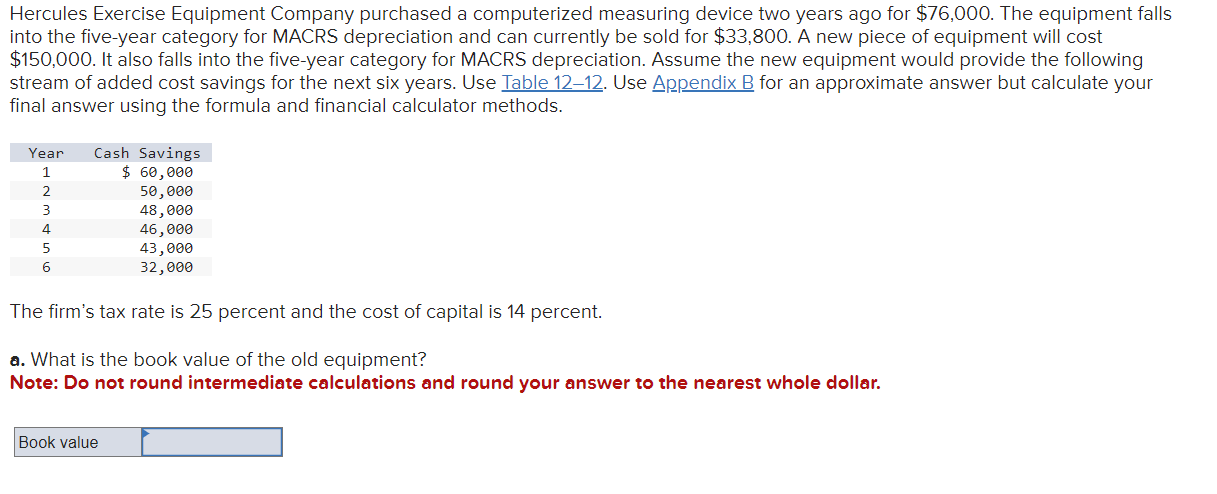
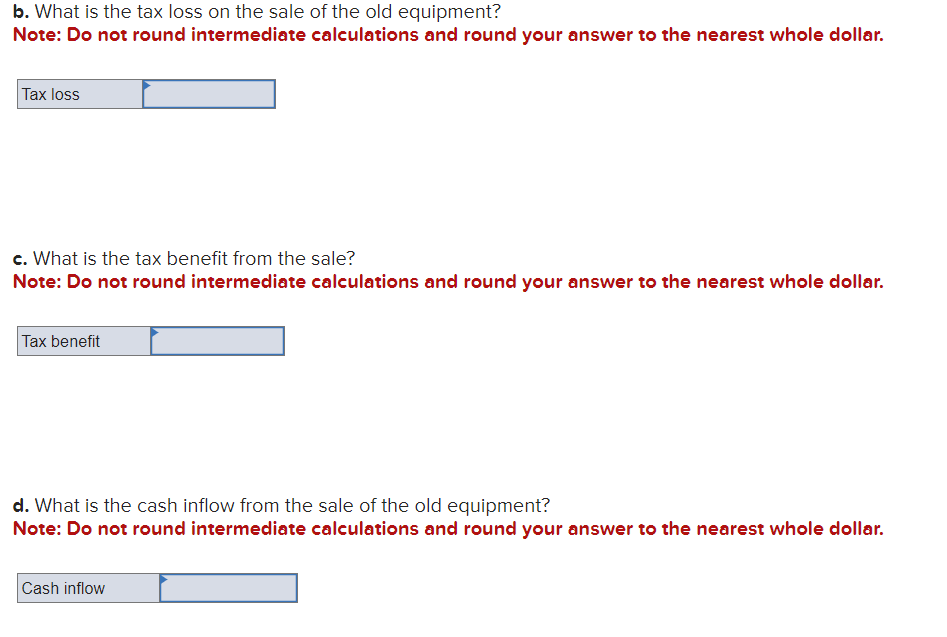
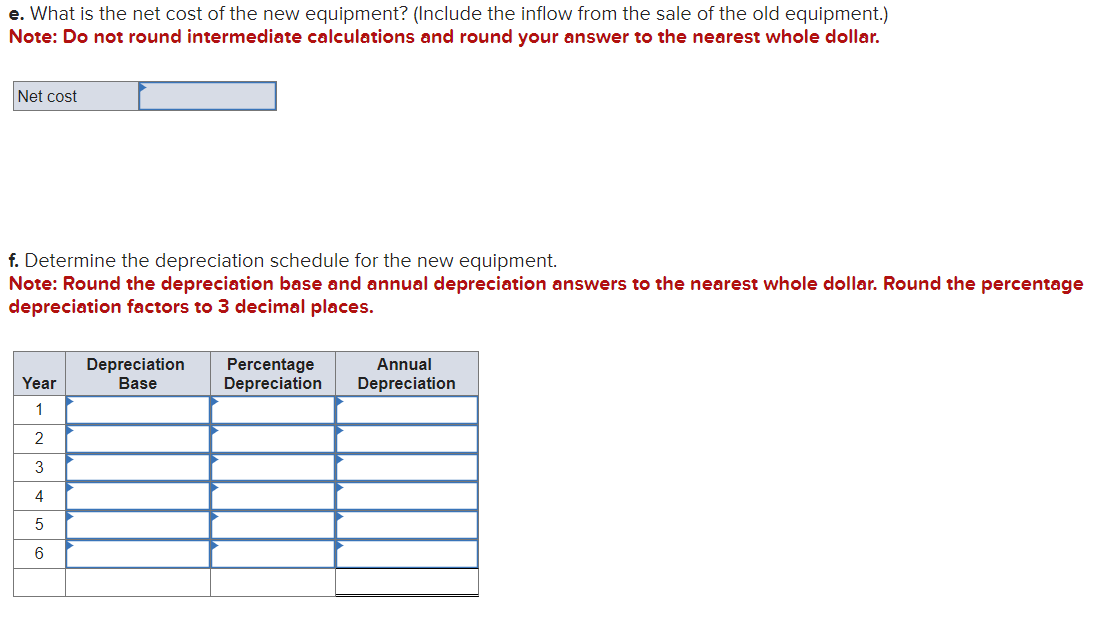



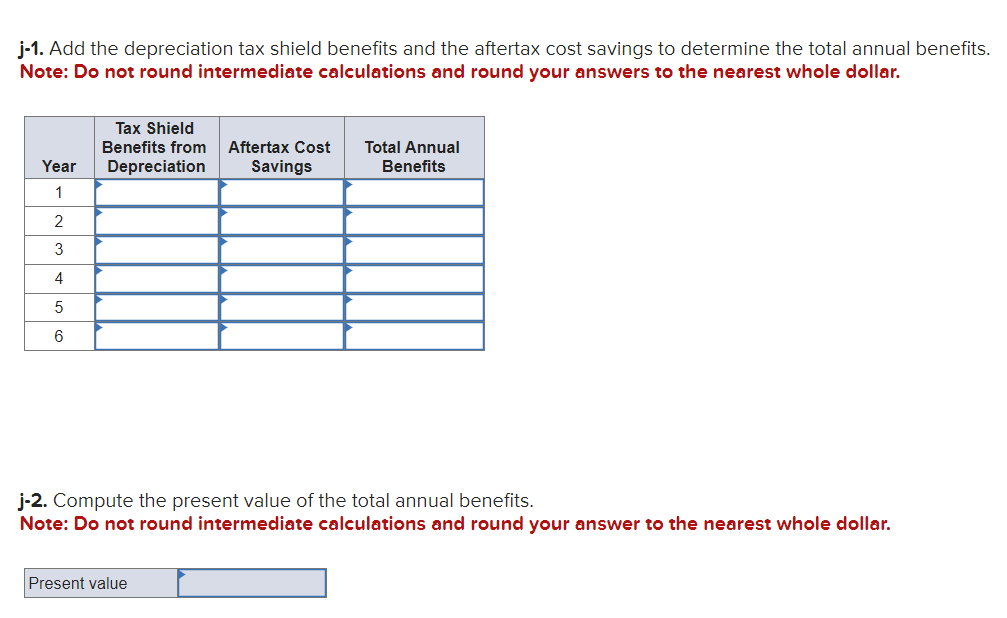
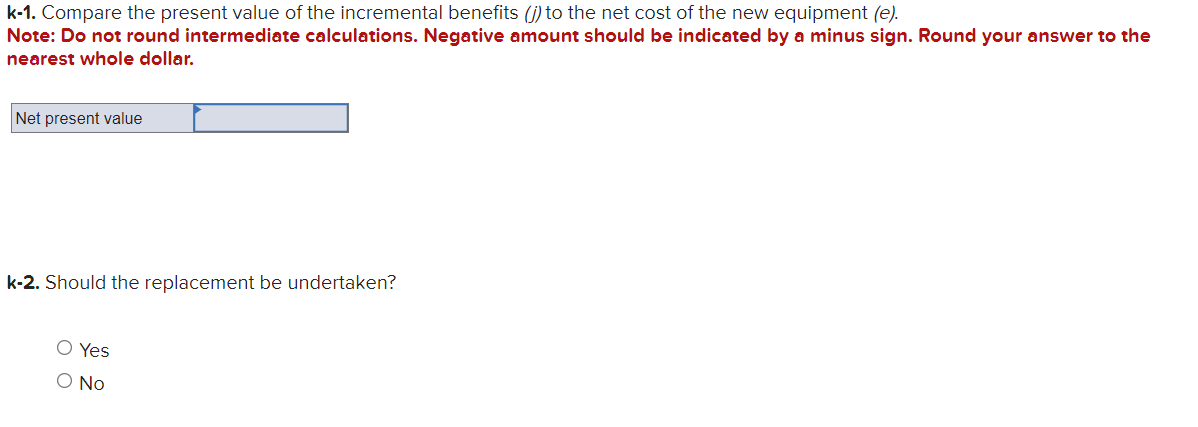
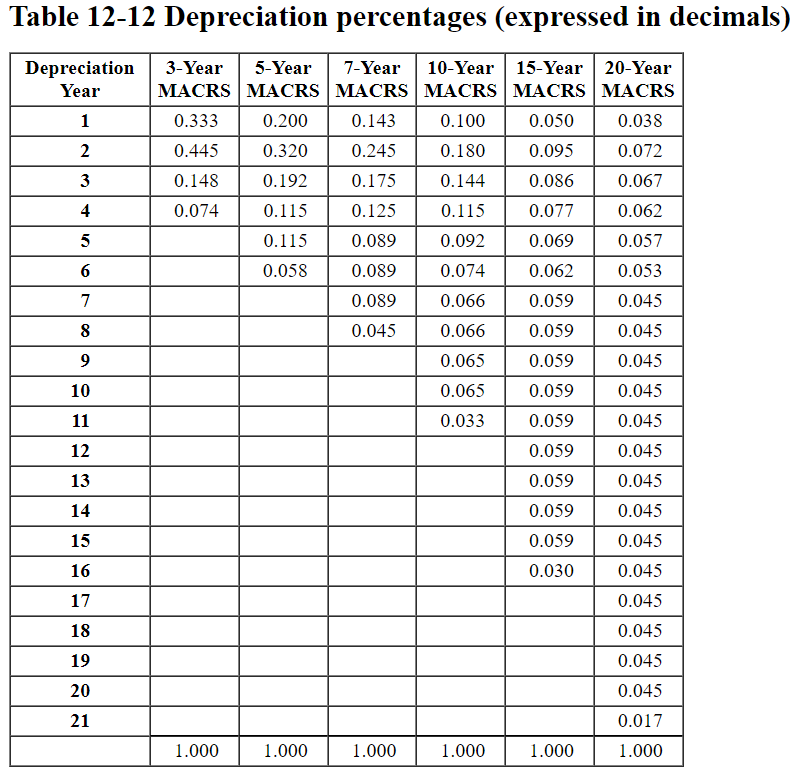
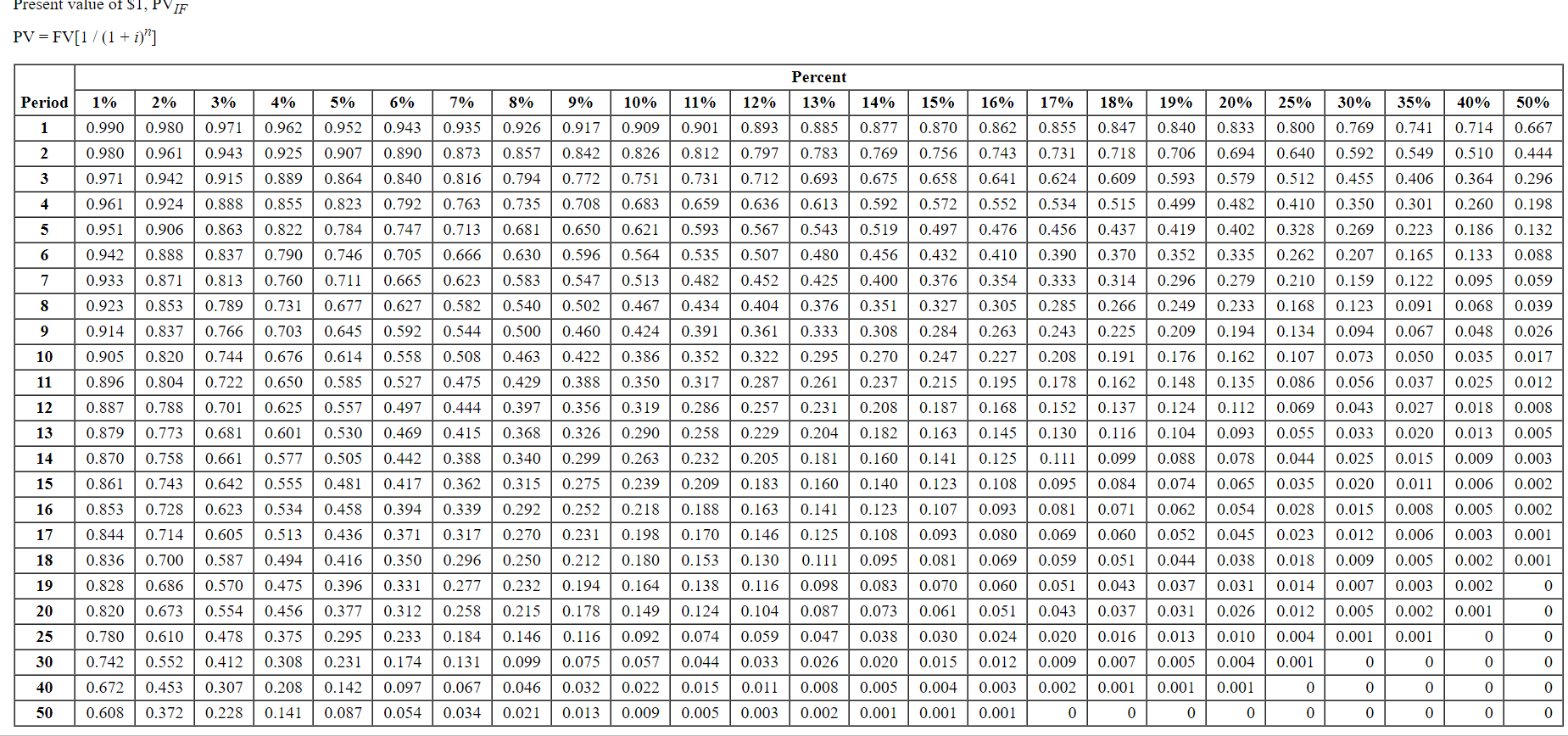 j-1. Add the depreciation tax shield benefits and the aftertax cost savings to determine the total annual benefits. Note: Do not round intermediate calculations and round your answers to the nearest whole dollar. j-2. Compute the present value of the total annual benefits. Note: Do not round intermediate calculations and round your answer to the nearest whole dollar. e. What is the net cost of the new equipment? (Include the inflow from the sale of the old equipment.) Note: Do not round intermediate calculations and round your answer to the nearest whole dollar. f. Determine the depreciation schedule for the new equipment. Note: Round the depreciation base and annual depreciation answers to the nearest whole dollar. Round the percentage depreciation factors to 3 decimal places. Present value of $1,PIF PV=FV[1/(1+i)n] Hercules Exercise Equipment Company purchased a computerized measuring device two years ago for $76,000. The equipment falls into the five-year category for MACRS depreciation and can currently be sold for $33,800. A new piece of equipment will cost $150,000. It also falls into the five-year category for MACRS depreciation. Assume the new equipment would provide the following stream of added cost savings for the next six years. Use Table 12-12. Use for an approximate answer but calculate your final answer using the formula and financial calculator methods. The firm's tax rate is 25 percent and the cost of capital is 14 percent. a. What is the book value of the old equipment? Note: Do not round intermediate calculations and round your answer to the nearest whole dollar. b. What is the tax loss on the sale of the old equipment? Note: Do not round intermediate calculations and round your answer to the nearest whole dollar. c. What is the tax benefit from the sale? Note: Do not round intermediate calculations and round your answer to the nearest whole dollar. d. What is the cash inflow from the sale of the old equipment? Note: Do not round intermediate calculations and round your answer to the nearest whole dollar. cimals) h. Determine the incremental depreciation between the old and new equipment and the related tax shield benefits. Note: Enter the tax rate as a decimal rounded to 2 decimal places. Round all other answers to the nearest whole dollar. Compute the aftertax benefits of the cost savings. Note: Enter the aftertax factor as a decimal rounded to 2 decimal places. Round all other answers to the nearest whole dollar. k-1. Compare the present value of the incremental benefits (j) to the net cost of the new equipment (e). Note: Do not round intermediate calculations. Negative amount should be indicated by a minus sign. Round your answer to the nearest whole dollar. k-2. Should the replacement be undertaken? Yes No g. Determine the depreciation schedule for the remaining years of the old equipment. Note: Round the depreciation base and annual depreciation answers to the nearest whole dollar. Round the percentage depreciation factors to 3 decimal places. j-1. Add the depreciation tax shield benefits and the aftertax cost savings to determine the total annual benefits. Note: Do not round intermediate calculations and round your answers to the nearest whole dollar. j-2. Compute the present value of the total annual benefits. Note: Do not round intermediate calculations and round your answer to the nearest whole dollar. e. What is the net cost of the new equipment? (Include the inflow from the sale of the old equipment.) Note: Do not round intermediate calculations and round your answer to the nearest whole dollar. f. Determine the depreciation schedule for the new equipment. Note: Round the depreciation base and annual depreciation answers to the nearest whole dollar. Round the percentage depreciation factors to 3 decimal places. Present value of $1,PIF PV=FV[1/(1+i)n] Hercules Exercise Equipment Company purchased a computerized measuring device two years ago for $76,000. The equipment falls into the five-year category for MACRS depreciation and can currently be sold for $33,800. A new piece of equipment will cost $150,000. It also falls into the five-year category for MACRS depreciation. Assume the new equipment would provide the following stream of added cost savings for the next six years. Use Table 12-12. Use for an approximate answer but calculate your final answer using the formula and financial calculator methods. The firm's tax rate is 25 percent and the cost of capital is 14 percent. a. What is the book value of the old equipment? Note: Do not round intermediate calculations and round your answer to the nearest whole dollar. b. What is the tax loss on the sale of the old equipment? Note: Do not round intermediate calculations and round your answer to the nearest whole dollar. c. What is the tax benefit from the sale? Note: Do not round intermediate calculations and round your answer to the nearest whole dollar. d. What is the cash inflow from the sale of the old equipment? Note: Do not round intermediate calculations and round your answer to the nearest whole dollar. cimals) h. Determine the incremental depreciation between the old and new equipment and the related tax shield benefits. Note: Enter the tax rate as a decimal rounded to 2 decimal places. Round all other answers to the nearest whole dollar. Compute the aftertax benefits of the cost savings. Note: Enter the aftertax factor as a decimal rounded to 2 decimal places. Round all other answers to the nearest whole dollar. k-1. Compare the present value of the incremental benefits (j) to the net cost of the new equipment (e). Note: Do not round intermediate calculations. Negative amount should be indicated by a minus sign. Round your answer to the nearest whole dollar. k-2. Should the replacement be undertaken? Yes No g. Determine the depreciation schedule for the remaining years of the old equipment. Note: Round the depreciation base and annual depreciation answers to the nearest whole dollar. Round the percentage depreciation factors to 3 decimal places
j-1. Add the depreciation tax shield benefits and the aftertax cost savings to determine the total annual benefits. Note: Do not round intermediate calculations and round your answers to the nearest whole dollar. j-2. Compute the present value of the total annual benefits. Note: Do not round intermediate calculations and round your answer to the nearest whole dollar. e. What is the net cost of the new equipment? (Include the inflow from the sale of the old equipment.) Note: Do not round intermediate calculations and round your answer to the nearest whole dollar. f. Determine the depreciation schedule for the new equipment. Note: Round the depreciation base and annual depreciation answers to the nearest whole dollar. Round the percentage depreciation factors to 3 decimal places. Present value of $1,PIF PV=FV[1/(1+i)n] Hercules Exercise Equipment Company purchased a computerized measuring device two years ago for $76,000. The equipment falls into the five-year category for MACRS depreciation and can currently be sold for $33,800. A new piece of equipment will cost $150,000. It also falls into the five-year category for MACRS depreciation. Assume the new equipment would provide the following stream of added cost savings for the next six years. Use Table 12-12. Use for an approximate answer but calculate your final answer using the formula and financial calculator methods. The firm's tax rate is 25 percent and the cost of capital is 14 percent. a. What is the book value of the old equipment? Note: Do not round intermediate calculations and round your answer to the nearest whole dollar. b. What is the tax loss on the sale of the old equipment? Note: Do not round intermediate calculations and round your answer to the nearest whole dollar. c. What is the tax benefit from the sale? Note: Do not round intermediate calculations and round your answer to the nearest whole dollar. d. What is the cash inflow from the sale of the old equipment? Note: Do not round intermediate calculations and round your answer to the nearest whole dollar. cimals) h. Determine the incremental depreciation between the old and new equipment and the related tax shield benefits. Note: Enter the tax rate as a decimal rounded to 2 decimal places. Round all other answers to the nearest whole dollar. Compute the aftertax benefits of the cost savings. Note: Enter the aftertax factor as a decimal rounded to 2 decimal places. Round all other answers to the nearest whole dollar. k-1. Compare the present value of the incremental benefits (j) to the net cost of the new equipment (e). Note: Do not round intermediate calculations. Negative amount should be indicated by a minus sign. Round your answer to the nearest whole dollar. k-2. Should the replacement be undertaken? Yes No g. Determine the depreciation schedule for the remaining years of the old equipment. Note: Round the depreciation base and annual depreciation answers to the nearest whole dollar. Round the percentage depreciation factors to 3 decimal places. j-1. Add the depreciation tax shield benefits and the aftertax cost savings to determine the total annual benefits. Note: Do not round intermediate calculations and round your answers to the nearest whole dollar. j-2. Compute the present value of the total annual benefits. Note: Do not round intermediate calculations and round your answer to the nearest whole dollar. e. What is the net cost of the new equipment? (Include the inflow from the sale of the old equipment.) Note: Do not round intermediate calculations and round your answer to the nearest whole dollar. f. Determine the depreciation schedule for the new equipment. Note: Round the depreciation base and annual depreciation answers to the nearest whole dollar. Round the percentage depreciation factors to 3 decimal places. Present value of $1,PIF PV=FV[1/(1+i)n] Hercules Exercise Equipment Company purchased a computerized measuring device two years ago for $76,000. The equipment falls into the five-year category for MACRS depreciation and can currently be sold for $33,800. A new piece of equipment will cost $150,000. It also falls into the five-year category for MACRS depreciation. Assume the new equipment would provide the following stream of added cost savings for the next six years. Use Table 12-12. Use for an approximate answer but calculate your final answer using the formula and financial calculator methods. The firm's tax rate is 25 percent and the cost of capital is 14 percent. a. What is the book value of the old equipment? Note: Do not round intermediate calculations and round your answer to the nearest whole dollar. b. What is the tax loss on the sale of the old equipment? Note: Do not round intermediate calculations and round your answer to the nearest whole dollar. c. What is the tax benefit from the sale? Note: Do not round intermediate calculations and round your answer to the nearest whole dollar. d. What is the cash inflow from the sale of the old equipment? Note: Do not round intermediate calculations and round your answer to the nearest whole dollar. cimals) h. Determine the incremental depreciation between the old and new equipment and the related tax shield benefits. Note: Enter the tax rate as a decimal rounded to 2 decimal places. Round all other answers to the nearest whole dollar. Compute the aftertax benefits of the cost savings. Note: Enter the aftertax factor as a decimal rounded to 2 decimal places. Round all other answers to the nearest whole dollar. k-1. Compare the present value of the incremental benefits (j) to the net cost of the new equipment (e). Note: Do not round intermediate calculations. Negative amount should be indicated by a minus sign. Round your answer to the nearest whole dollar. k-2. Should the replacement be undertaken? Yes No g. Determine the depreciation schedule for the remaining years of the old equipment. Note: Round the depreciation base and annual depreciation answers to the nearest whole dollar. Round the percentage depreciation factors to 3 decimal places Step by Step Solution
There are 3 Steps involved in it
Step: 1

Get Instant Access to Expert-Tailored Solutions
See step-by-step solutions with expert insights and AI powered tools for academic success
Step: 2

Step: 3

Ace Your Homework with AI
Get the answers you need in no time with our AI-driven, step-by-step assistance
Get Started


